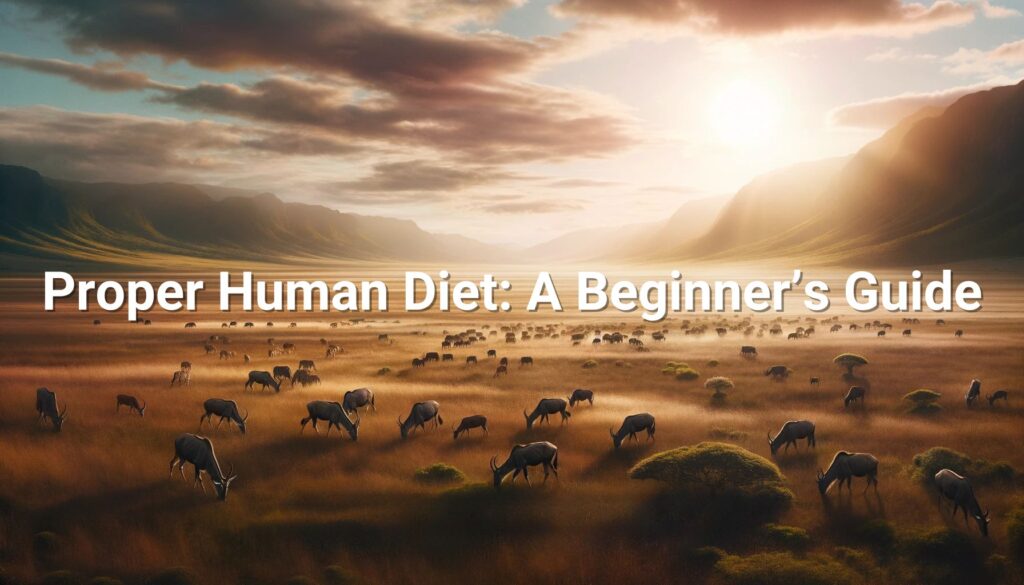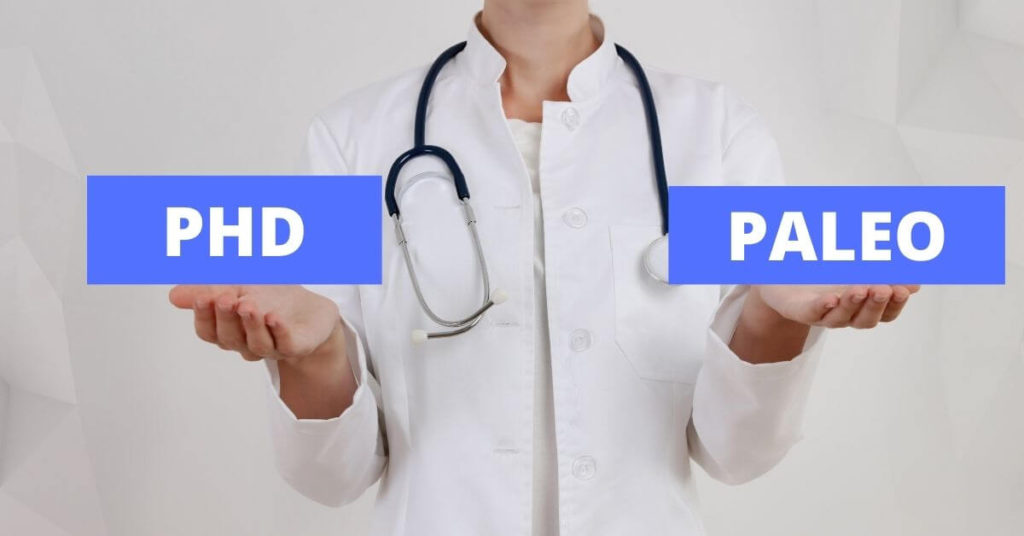Women Need This Much PROTEIN: Insights from Dr. Gabrielle Lyon turn the table on standard dietary advice. Delve into her groundbreaking perspective on protein’s power for women’s health. Get ready to challenge what you thought you knew about nutrition!
Understanding the right amount of protein intake is crucial, especially for women. In this enlightening article, based on an interview between Dr. Berry and Dr. Gabrielle Lyon, we dive into the world of protein with the expertise of Dr. Gabrielle Lyon, a renowned family physician with a passion for optimizing muscle health and promoting longevity.
The Optimal Protein Intake for Women
Protein is not just a nutrient; it’s a cornerstone of a healthy lifestyle. For women, the stakes are even higher as they face unique health challenges. Dr. Lyon sheds light on how much protein women truly need to maintain optimal health, combat obesity, heart disease, and diabetes, and why the standard recommendations might be falling short.
This website participates in the Amazon Associates Program, and it earns commissions from qualifying purchases made through Amazon links provided here.
Discover the Secrets to Aging Well with Dr. Lyon’s “Forever Strong”

Unlock the pathway to a healthier, stronger you with Dr. Gabrielle Lyon’s groundbreaking book, “Forever Strong: A New, Science-Based Strategy for Aging Well.” This isn’t just another health book; it’s a journey into the depths of how you can harness the power of nutrition to transform your life.
Why This Book is a Must-Read:
Dr. Lyon, with her unparalleled expertise in nutritional sciences and muscle metabolism, guides you through a science-backed strategy for aging gracefully. “Forever Strong” is more than a title—it’s a promise of what you can achieve through Dr. Lyon’s profound insights.
What You’ll Discover Inside:
- Science-Based Strategies: Learn about the latest research and findings on aging well.
- Personalized Nutrition Plans: Dr. Lyon provides tailored advice to meet your individual health needs.
- Practical Lifestyle Tips: Beyond diet, discover holistic lifestyle changes that can enhance your longevity.
Take the First Step Towards Aging with Strength:
Embark on this enlightening journey to a healthier, more vibrant future. “Forever Strong: A New, Science-Based Strategy for Aging Well” is available now on Amazon. Don’t just age; age well with Dr. Gabrielle Lyon’s expert guidance.
Get Your Copy Today
Seize this opportunity to revolutionize your approach to aging. Visit Amazon through this link to purchase your copy of “Forever Strong” and start your journey to a more youthful, vigorous you.
Begin your transformation now. The science of aging well is just a click away!
The Importance of Adequate Protein
When we talk about a cornerstone in the architecture of a healthy lifestyle, protein stands tall. It’s more than just a nutrient; it’s a key player in the symphony of bodily functions, particularly for women. Dr. Gabrielle Lyon, a luminary in the field of nutritional science, brings to light a crucial perspective on protein intake for women.
Why Women Need More
Women’s health is a mosaic of complexity. Unique challenges like hormonal fluctuations, pregnancy, and menopause demand a tailored approach to nutrition. Dr. Lyon, with her profound expertise, pinpoints protein as a pivotal element in this equation. She argues that the standard protein recommendations, often a one-size-fits-all guideline, might not be adequate for women striving for optimal health.
Protein: A Tool to Combat Health Threats
In a world where obesity, heart disease, and diabetes are escalating threats, protein takes on the role of a guardian. It’s not just about building muscles; it’s about fortifying the body against these prevalent health issues. Dr. Lyon’s analysis is not just theoretical. It’s backed by years of research and clinical experience, indicating that an increased protein intake can be a game-changer for women’s health.
Rethinking the Standard Guidelines
Dr. Lyon doesn’t just state the problem; she redefines the solution. She challenges the norm by suggesting an increased protein intake – a move that could potentially rewrite the rules of women’s nutrition. This call to action isn’t just a casual suggestion; it’s a well-researched, well-argued stance backed by scientific evidence.
Intrigued? You should be. Dr. Lyon’s insights are just the tip of the iceberg. Dive deeper to uncover how this shift in protein consumption could revolutionize women’s health. Stay tuned as we explore more of Dr. Lyon’s groundbreaking perspective on protein – the unsung hero in women’s health.
Doubling the Recommended Dietary Allowance (RDA)
Dr. Lyon suggests that the current RDA for protein is insufficient for aging women. She advocates for doubling this amount, proposing 0.7 grams per pound of body weight. This increased intake is vital for maintaining muscle health and metabolic balance as women age.
In the realm of nutrition, the Recommended Dietary Allowance (RDA) has long been the guiding star. But what if this star has been a little dim for the needs of aging women? This is where Dr. Gabrielle Lyon, with her trailblazing insights, steps in. She boldly suggests that the current RDA for protein doesn’t quite hit the mark for women, especially as they age.
A New Paradigm for Protein Intake
Imagine a world where women could defy the odds of aging, maintaining muscle strength and metabolic health well into their later years. Dr. Lyon doesn’t just imagine it; she advocates for it. Doubling the RDA, proposing 0.7 grams per pound of body weight, is not just a number she casually throws out. It’s a carefully considered recommendation rooted in extensive research and clinical practice.
Why More is More
This isn’t about indulgence; it’s about adequacy. The increase from the standard RDA is a strategic move to bolster women’s health. It’s about ensuring muscle health, which is a critical ally in the fight against age-related decline. Muscle isn’t just for show; it plays a vital role in metabolic regulation and overall health. And for this, protein is indispensable.
The Power of 0.7 Grams
Why 0.7 grams? This isn’t a random figure. It’s a calculated response to the unique physiological needs of women, particularly as they navigate the challenges of aging. Dr. Lyon’s recommendation of 0.7 grams per pound of body weight is a beacon of hope for a demographic often left navigating in the dark when it comes to nutrition.
As we peel back the layers of Dr. Lyon’s proposal, the narrative gets more compelling. Stay tuned to explore how this increased protein intake could be the secret weapon for women in their golden years. With Dr. Lyon’s guidance, the journey to a healthier, stronger future looks not just possible but also promising.
Debunking Protein Myths

The interview with Dr Berry navigates the complex discussion of protein sources. Dr. Lyon explains the challenges in getting enough protein from plant-based diets without overloading with carbohydrates. She contrasts this with the effectiveness of animal-based proteins like whey, which provide a higher content of leucine and a balanced amino acid profile, essential for muscle health.
Plant-Based vs. Animal-Based Protein
In the evolving narrative of nutrition, the source of protein has sparked debates and discussions. Dr. Gabrielle Lyon navigates these waters with expertise, shedding light on a pivotal aspect: the comparison between plant-based and animal-based proteins.
The Plant-Based Puzzle
Embracing a plant-based diet has its virtues, but it comes with its own set of challenges, especially when it comes to protein. Dr. Lyon doesn’t shy away from addressing this. She points out a key hurdle – getting enough protein without inadvertently piling up on carbohydrates. This isn’t a trivial concern; it’s a nutritional tightrope that many who follow plant-based diets walk on. Dr. Lyon’s analysis isn’t just food for thought; it’s a clarion call to be mindful of the balance in plant-based eating.
Why Animal Protein Stands Out
Then, there’s the world of animal-based proteins. Dr. Lyon turns the spotlight on sources like whey, known for their robust profile of amino acids. Whey isn’t just protein; it’s a powerhouse of leucine, a branch-chain amino acid that’s crucial for muscle health. In the intricate dance of amino acids, balance is key, and animal-based proteins like whey are often the lead dancers. Dr. Lyon isn’t just presenting a preference; she’s backing it with science.
The Amino Acid Advantage
Why does this matter? Because in the quest for optimal health, especially as we age, the quality of protein we consume can make a world of difference. Muscle health, metabolic balance, and overall well-being are influenced heavily by our protein choices.
As we delve deeper into Dr. Lyon’s insights on protein sources, the narrative gets richer. Stay with us as we explore more of her profound knowledge, a guidepost for those seeking the best path in their nutritional journey. With Dr. Lyon’s guidance, the choice between plant and animal protein becomes less of a dilemma and more of an informed decision.

Busting the Bulk Myth
One of the biggest myths about protein intake is the fear of bulking up. Dr. Lyon addresses this concern head-on, reassuring that increased protein intake will not lead to excessive bulk, especially in women.
The world of fitness and nutrition is rife with myths, but perhaps none as pervasive as the fear of ‘bulking up’ from protein intake. Dr. Gabrielle Lyon confronts this misconception with the facts, providing a breath of fresh air to the often misinformed dialogue around protein consumption.
The Reality Behind Protein and Muscle Mass
For many women, the idea of adding more protein to their diet brings visions of muscular bulkiness, but Dr. Lyon reassures that this scenario is more myth than reality. She explains that increased protein intake, especially in the context of a balanced diet, doesn’t lead to excessive muscle gain. This is a crucial clarification, dismantling a barrier that might have kept many women from embracing the true benefits of adequate protein.
Tailoring Protein for Optimal Health
Dr. Lyon’s approach goes beyond debunking myths; she offers a perspective that encourages women to see protein as a vital nutrient for overall health, not just muscle building. This reassurance is empowering, particularly for those who have hesitated to adjust their protein intake due to misconceptions.
Stay tuned for more enlightening insights from Dr. Lyon as we continue to navigate the intricate world of nutrition and health. Her expertise not only challenges common myths but also opens up a world of possibilities for a healthier, well-nourished life.
Practical Advice on Protein Intake

Understanding and Tailoring Your Protein Needs
Every woman’s body is unique, and so are her protein needs. Dr. Lyon emphasizes the importance of tracking protein consumption to understand individual needs. She provides guidance on adjusting intake based on factors like activity level, metabolic health, and dietary goals.
Understanding and Tailoring Your Protein Needs
In the journey to optimal health, understanding one’s unique protein needs is key. Dr. Gabrielle Lyon emphasizes this personalized approach, advocating for a nuanced view of protein consumption that aligns with each woman’s individuality.
Personalized Nutrition: More than Just Numbers
Dr. Lyon’s perspective extends beyond generic dietary recommendations. She understands that each woman’s body has its own narrative, influenced by activity level, metabolic health, and personal health goals. This holistic approach isn’t just about hitting a protein target; it’s about crafting a diet that harmonizes with one’s lifestyle and bodily requirements.
The Art of Protein Tracking
Dr. Lyon suggests tracking protein intake as a foundational step in this personalization process. This isn’t just about meticulous counting; it’s a tool for gaining insights into how different levels of protein affect one’s overall well-being. She guides readers to adjust their protein intake thoughtfully, considering the impact of their daily activities and long-term health aspirations.
As we dive deeper into Dr. Lyon’s insights, the narrative becomes more compelling. Stay tuned to discover how you can tailor your protein needs for optimal health as we continue to explore Dr. Lyon’s expert advice on nutrition and wellness. Her approach isn’t just about following guidelines; it’s about empowering each individual to find their perfect protein balance.
The Role of Protein in Every Meal

Dr. Lyon stresses the significance of including protein in every meal to achieve optimal health benefits. She encourages a balanced diet in which protein takes center stage, supported by other essential nutrients.
In this article, we unravel the facts about protein needs for women and break down common misconceptions. Her insights and practical advice offer a pathway to enhanced health and longevity through the power of protein.
Dr. Gabrielle Lyon brings a refreshing perspective to the table, literally. She emphasizes the importance of incorporating protein into every meal, making it a central component of a balanced diet. This isn’t just a dietary preference; it’s a strategic approach to optimal health.
Protein: The Centerpiece of Nutrition
In Dr. Lyon’s nutritional blueprint, protein isn’t merely an add-on; it’s the cornerstone. Each meal becomes an opportunity to nourish and strengthen the body with this essential nutrient. But why is this so important? Protein, as Dr. Lyon suggests, is more than a building block for muscles; it’s a key player in overall metabolic health and longevity.
Crafting Balanced Meals with Protein
Incorporating protein into every meal might seem daunting, but it’s simpler than it sounds. Dr. Lyon’s philosophy encourages a diet where protein works in harmony with other nutrients. This isn’t about protein overload; it’s about creating a symphony of nutrients with protein leading the ensemble.

Practical Tips and Recipes
For those looking for practical ways to implement this, delve into our articles: ‘Proper Human Diet: A Beginner’s Guide‘ and ‘Proper Human Diet Recipes: A 7-Day Meal Plan‘. These resources offer a treasure trove of information and recipes, making it easier to integrate protein into your daily meals in delicious and diverse ways.
Her insights not only challenge conventional wisdom but also open up a world where each meal is a step towards enhanced health and vitality. It’s not just about eating; it’s about thriving through the power of protein.
Benefits of a Protein-Forward Diet
Balances Blood Sugar
Protein plays a pivotal role in stabilizing blood sugar levels. By incorporating more protein into your diet, you can expect a steadier energy flow without the spikes and crashes often associated with high-carb meals.
Increases Energy
Feel the difference as protein fuels your day with sustained energy. Unlike quick sugars, protein provides a long-lasting energy source, keeping you active and alert for longer periods.

Improves Mental Clarity
Protein isn’t just for muscles; it’s brain food too. A protein-rich diet can sharpen your mental clarity, enhancing focus and cognitive functions, which is crucial for daily tasks and decision-making.
Impacts Sleep
Better sleep, really? Yes! Protein can influence sleep quality positively. It aids in the production of serotonin, a neurotransmitter that’s essential for a good night’s rest.
Decreases Inflammation
Inflammation is your body’s response to stress, and a high-protein diet can help reduce this. Protein has properties that can soothe and alleviate inflammation, leading to overall better health.
Improves Body Composition
Protein is key in building muscle and losing fat, leading to improved body composition. It’s not just about weight loss; it’s about fostering a stronger, healthier body.
Reduces Cravings
Bid farewell to those nagging cravings. Protein helps in keeping you full longer, reducing the urge to snack on unhealthy foods, thus helping you maintain a balanced diet.
Embrace the power of a protein-forward diet and unlock these benefits for a healthier, more vibrant you!
Medical Disclaimer:
The content of this article, including text, graphics, images, and other material, is provided for informational purposes only and is not intended as a substitute for professional medical advice, diagnosis, or treatment. Always seek the advice of your physician or other qualified health provider with any questions you may have regarding a medical condition. Never disregard professional medical advice or delay in seeking it because of something you have read on this website.


